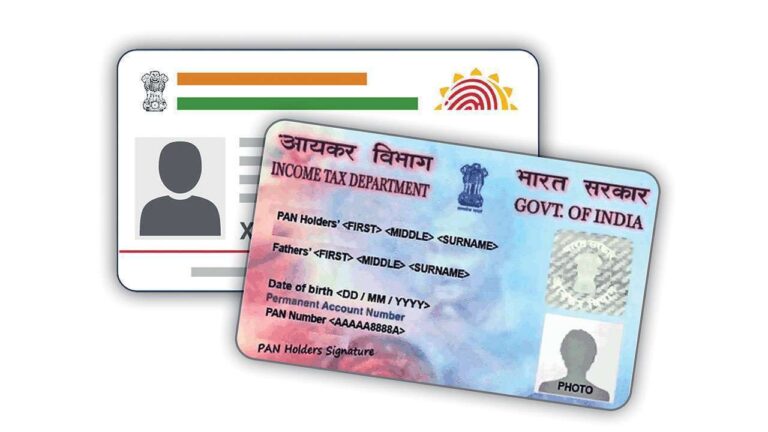The Commissioner of Income Tax is an important income tax authority which has executive and judicial powers. The Commissioner exercises the power to control the staff of income tax department working in his jurisdiction. He is also responsible for the efficiency of work in all respect in his zone.
As the head of the administration, the Commissioner of Income Tax has certain administrative as well as judicial powers. He may exercise the powers of an Assessing Officer and has the power to transfer any case from one or more Assessing Officers to any other Assessing Officer.
Revisionary Powers of Commissioner Under Income-Tax Act
Revision by the Commissioner confers two types of revisional power on the Commissioner of Income–tax, viz., one is revision of orders prejudicial to revenue under section 263 and the other is revision in favour of the assessee under section 264 of the Income–tax Act, 1961 (‘the Act’). Under section 263 the Commissioner has been given the power to call for and examine the record of any proceeding under the Act and if he considers that the ITO’s order is erroneous and prejudicial to the interest of revenue, he may revise such order. This power of revision has been conferred on the Commissioner as the supervisory head of the department and is available only against the orders of the ITO. The power of revision for the Commissioner is not a general right and is an alternative to the right of appeal as the department has no right of appeal against the orders passed by the ITO.
On the other hand, under section 264 the Commissioner may revise any order, passed by any authority subordinate to it, in favour of the assessee. It provides an alternative remedy for the assessee and he may apply for a cheaper and quicker remedy of revision instead of filing an appeal if he has been prevented from redressing his grievance due to negligence, sickness, etc. In such cases, the Commissioner may either act suo motu or on an application made by the assessee.
Search and Seizure [Section 132 of Income Tax Act ]
Where the Principal Director General or Director General or Principal Director or Director or the Principal Chief Commissioner or] Chief Commissioner or Principal Commissioner or Commissioner or Additional Director or Additional Commissioner or Joint Director or Joint Commissioner in consequence of information in his possession, has reason to believe that (a), (b), or (c) as mentioned under section 132(1), then it may be authorised to enter and search any building, place, vessel, vehicle or aircraft] where he has reason to suspect that such books of account, other documents, money, bullion, jewellery or other valuable article or thing are kept;
Power to Requisition Books of Account etc. [Section 132A of Income Tax Act]
Where the Principal Director General or Director General or Principal Director or Director] or the [Principal Chief Commissioner or Chief Commissioner or Principal Commissioner or Commissioner, in consequence of information in his possession, has reason to believe that (a), (b), or (c) as mentioned under section 132(1) and the book of accounts or other documents or the assets have been taken under custody by any authority or officer under any other law, then the Principal Director General or Director General or Principal Director or Director or the Principal Chief Commissioner or Chief Commissioner or Principal Commissioner or Commissioner may authorise any Additional Director, Additional Commissioner,Joint Director, Joint Commissioner, Assistant Director or Deputy Director, Assistant Commissioner or Deputy Commissioner or Income-tax Officer (hereafter in this section and in sub-section (2) of section 278D referred to as the requisitioning officer) to require the officer or authority referred to in clause (a) or clause (b) or clause (c), as the case may be, to deliver such books of account, other documents or assets to the requisitioning officer.
Application of Retained Assets [Section 132B of Income Tax Act ]
This section provides that the seized assets can be appropriated against all tax liabilities of the assessee.
However , where the person concerned makes an application to the Assessing Officer within thirty days from the end of the month in which the asset was seized, for release of asset and the nature and source of acquisition of any such asset is explained to the satisfaction of the Assessing Officer, the amount of any existing liability referred to in this clause may be recovered out of such asset and the remaining portion, if any, of the asset may be released, with the prior approval of the [Principal Chief Commissioner or Chief Commissioner or Principal Commissioner or Commissioner, to the person from whose custody the assets were seized
Power to call for information [Sections 133 of Income Tax Act ]
Principal Director General or Director-General, the Principal Chief Commissioner or Chief Commissioner, the Principal Director or Director or the Principal Commissioner or Commissioner or the Joint Director or Deputy Director or Assistant Director may require any person, including a banking company or any officer thereof, to furnish information in relation to such points or matters, or to furnish statements of accounts and affairs verified in the manner specified, as will be useful for, or relevant to, any enquiry or proceeding under this Act :
Power to make Enquiry [ Section 135 of Income Tax Act ]
The Principal Director General or Director General or Principal Director or Director, the Principal Chief Commissioner or Chief Commissioner or Principal Commissioner or] Commissioner and the Joint Commissioner] shall be competent to make any enquiry under this Act, and for this purpose shall have all the powers that an Assessing Officer has under this Act in relation to the making of enquiries.
Power of Commissioner to reduce or waive Penalty
Apart from enacting penalty provisions, the Income-tax Act also designed provisions empowering the
Principal Commissioner of Income-tax or Commissioner of Income-tax to grant relief from penalty to taxpayers in genuine cases. Such power is granted under section 273A and section 273AA. In this part you can gain knowledge about the provisions of section 273A and section 273AA. Read Click here
Power of Principal Commissioner or Commissioner to reduce or waive penalty under sections 273A(1), 273A(4) and 273AA
Waiver or reduction of penalty under section 273A(1)
Section 273A(1) empowers the Principal Commissioner or Commissioner to grant waiver or reduction from penalty imposed or imposable under section 270A (i.e., penalty for under-reporting and misreporting of income) or under section 271(1)(iii) (i.e., penalty for concealment of particulars of income or furnishing inaccurate particulars of income).
Initiation to be taken by Principal Commissioner or Commissioner or the taxpayer The waiver or reduction under section 273A(1) can be granted by the Principal Commissioner or Commissioner either on his own motion or otherwise, i.e., on an application made by the taxpayer. Read Click here
Waiver of penalty under section 273AA
Section 273AA empowers the Principal Commissioner or Commissioner to grant immunity from imposition of any penalty under the Income-tax Act in a case where the taxpayer has made an application for settlement under section 245C and the proceedings for settlement have been abated under section 245HA and penalty proceedings are
initiated under the Income-tax Act Read Click here
For More Information You can visit Govt of India Income Tax website Click here








